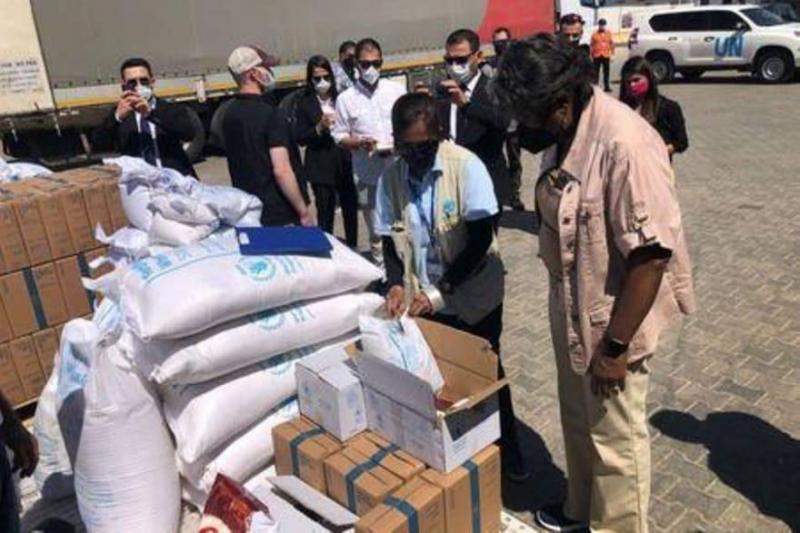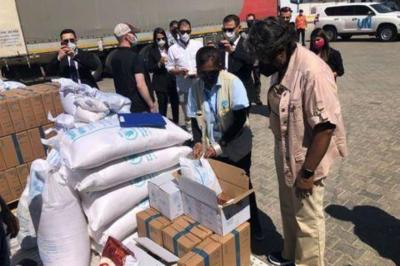A senior UN relief official stated on Thursday that millions of people in northwest Syria will face disaster if the United Nations fails to extend cross-border humanitarian operations next month. Approximately three million individuals, many of whom have been displaced by conflict in other parts of Syria over the past ten years, are seeking refuge in the area near the border with Turkey, away from the control of President Bashar al-Assad's government.
Last year, aid deliveries across the Turkish border were limited to just one crossing after Russia and China, both veto power holders in the UN Security Council, opposed the renewal of access through other crossings. A new standoff is anticipated next month when the operations' mandate is up for renewal.
Mark Kutz, the Deputy Regional Humanitarian Coordinator for the Syrian file, said, "It would be a disaster if the Security Council decision is not extended. We know people will indeed suffer." Speaking to Reuters at an aid center in the Turkish border town of Reyhanlı, Kutz expressed, "We expect the council to prioritize the needs of civilians... in northwest Syria, there are some of the neediest people in the world."
Currently, around 1,000 UN trucks cross into Syria each month to deliver food, medical supplies, and humanitarian aid through the only open crossing, Bab al-Hawa, in an effort to meet the needs of four out of five people in northwest Syria. US Ambassador to the UN Linda Thomas-Greenfield told reporters during a visit to the region, "This is their lifeline." She added, "For a year and a half, some members of the Security Council have shamefully been able to close two other crossings into Syria."
She continued, "Bab al-Hawa is all that remains... If it is closed, it will be an unjustifiable cruelty." Following an announcement of an additional $240 million in aid for Syrians and the countries hosting them, Thomas-Greenfield also expressed a desire to work with Russia to find ways to deliver aid across front lines to areas held by the Syrian government.
Russia, a supporter of Assad, accuses Western nations of ignoring the role that supplies crossing from Damascus could play. Kutz told the US envoy in a briefing near the border, "We have spent over a year negotiating with both sides to pass aid across the front lines and through the border." He added, "Despite all our efforts, we have not succeeded in passing even one truck across the front lines (with government-held areas). This is not due to a lack of attempts by the UN, but because it is a war zone."
He pointed out that alongside the challenges related to mobility restrictions, aid operations are suffering from funding shortages. Kutz told Thomas-Greenfield, "What we critically need is increased funding. We need more access, not less."




